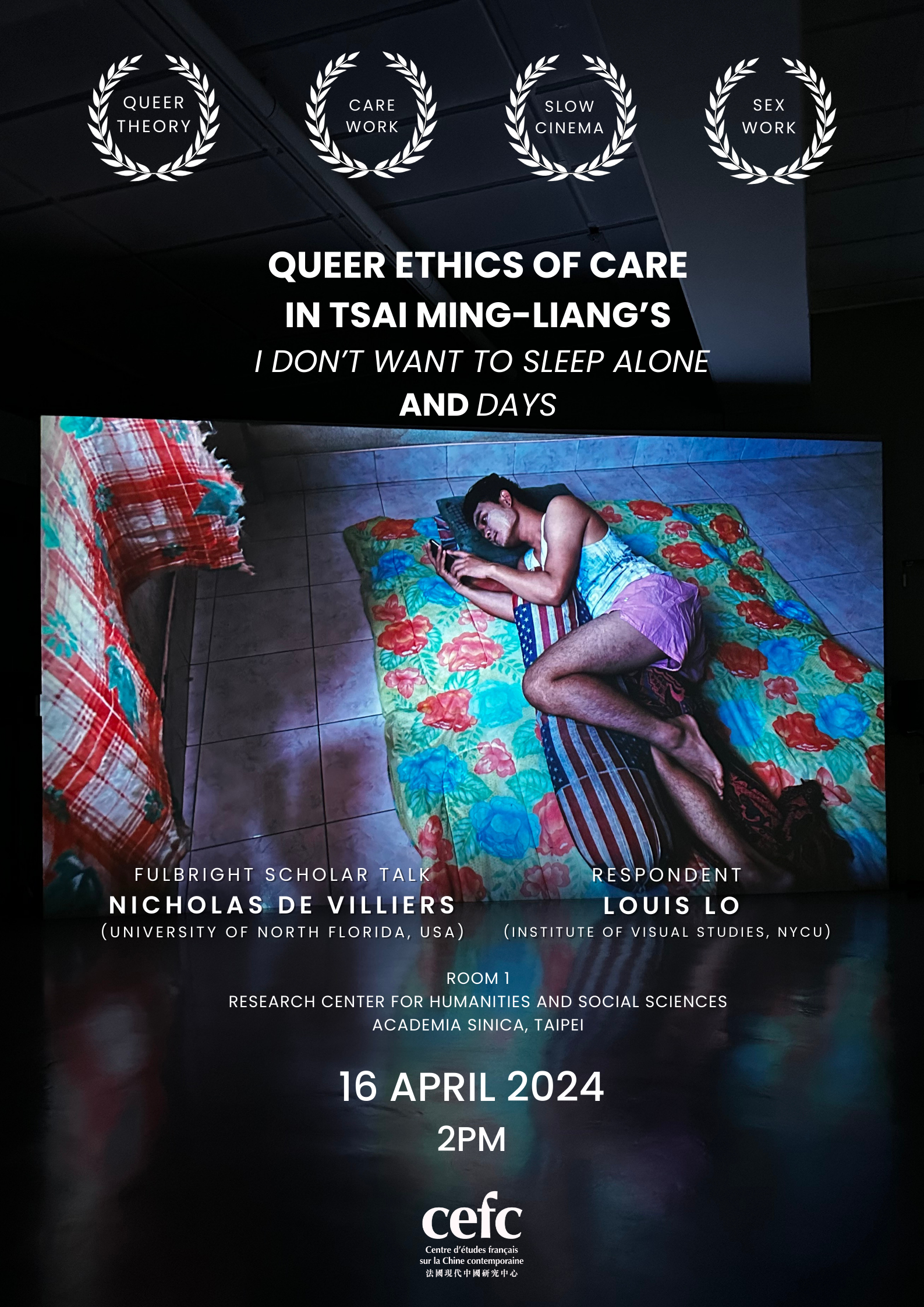The French Centre for Research on Contemporary China (CEFC), Taipei Office organise the following conference:
Speaker: Nicholas de Villiers (University of North Florida, USA)
Nicholas de Villiers is professor of English and film at the University of North Florida (USA). He is currently a Fulbright U.S. Senior Scholar in Taiwan at National Central University in the Center for the Study of Sexualities (2023–2024). He is the author of Opacity and the Closet: Queer Tactics in Foucault, Barthes, and Warhol(2012), Sexography: Sex Work in Documentary (2017), and Cruisy, Sleepy, Melancholy: Sexual Disorientation in the Films of Tsai Ming-liang (2022), all from the University of Minnesota Press.
Abstract:
Taiwan-based filmmaker Tsai Ming-liang’s Days (2020) features his “male muse” Lee Kang-sheng’s intimate encounter with a Laotian migrant male sex worker masseur in Bangkok (Anong Houngheuangsy): a massage session with a “happy ending.” Days portrays queer sex work as a form of care work, returning to treatments for Lee’s actual neck pain first incorporated into the plot of Tsai’s The River (1997). Tsai’s latest film raises issues of diasporic and queer temporality and labor, and “bounded authenticity” in sex work (Bernstein). The poignancy of watching Lee aging and suffering from neck ailments over eleven feature films with Tsai is enhanced by the juxtaposition of Lee’s body’s fragility with the caretaking bodies of two other male actors: (1) Norman bin Atun as Rawang, a Bangladeshi migrant laborer in Kuala Lumpur who takes in Hsiao Kang (Lee), a battered homeless man without a passport, and nurses him back to health in I Don’t Want to Sleep Alone (2006); (2) the young body of Anong, whose erotic massage seems to offer more relief and comfort than the moxibustion treatment we also watch Lee receiving. Lee gives Anong a music box which plays “Terry’s Theme” from Chaplin’s Limelight (1952), a song which Tsai used before at the end of Sleep, a link between the two films that invites further analysis. Examining these practices of care in Tsai’s nearly wordless “slow cinema,” I engage approaches to queer and crip temporality and performativity of emotional labor in feminist ethics of care and studies of disability and sex work. I close with a reflection on the recent Tsai Ming-liang’s Daysexhibition at the Museum of National Taipei University of Education (MoNTUE) as a staging of queer practices of care beyond representation.
Respondent : Louis Lo (Institute of Visual Studies, NYCU)
This seminar will be held in English.
Corrado Neri, Director of the CEFC Taipei, will chair the session.


